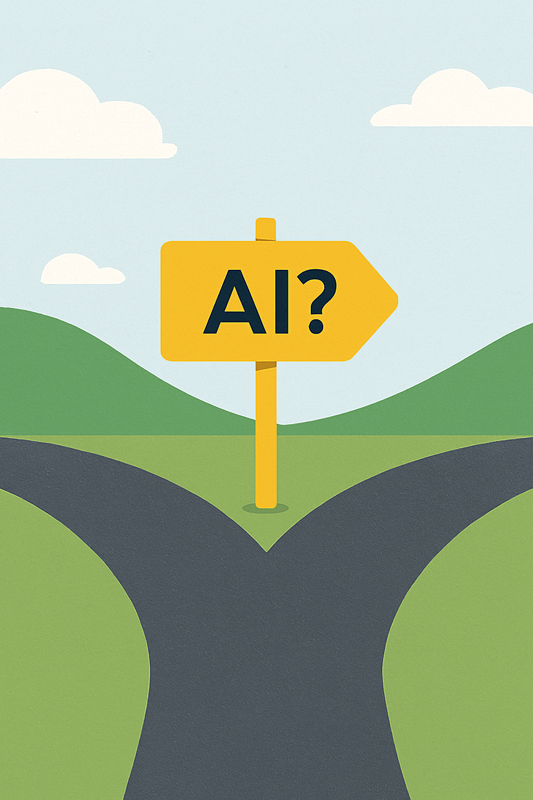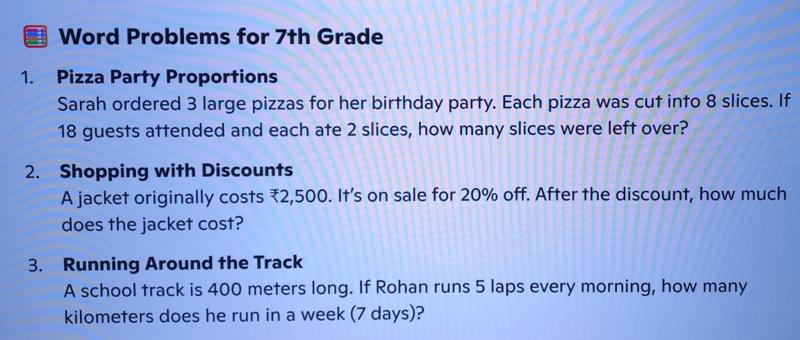
Cover image generated using Copilot
There has been a lot of hype surrounding AI (short for artificial intelligence), both good and bad, but most of it stems from the belief that AI is intelligent. Someday, perhaps, but as it stands, AI isn’t there yet.
Understanding AI
What we call AI, are actually large language models (LLMs) that statistically process gigantic volumes of data (From here on, I have used the terms LLMs and AI interchangeably in this article). They have been loaded with extensive data in the form of books, web scrapings, academic papers, documents, and now most of them through retrieval-augmented generation (RAG), can obtain and use context specific, new and up to date information not included in their training.
The LLMs efficiently sift through through vast amounts of data to find answers to your questions. But what’s interesting is, how it does that.
While it gives you the illusion that it ‘understands’ your question in the way a human does, it actually does not. What it does, is yield the most probable string of words that will answer your question. When the LLM calculates the most probable first word, it doesn’t know what the next one will be. It doesn’t have a ready complete answer. In fact, using statistical models, the words in the question and words it has already included in the answer, it calculates the most probable next word. Newer, more sophisticated models include fine tuning through Reinforcement Learning from Human Feedback (RLHF) to yield better results.
LLMs are extremely efficient at what they do, and with the expansive data they have access to, they have become quite adept at answering many questions. Equipped with training modules for particular jobs, which supply it additional relevant data for a specific task, their functionality can be further improved.
Here is a simple video explaining the details of how LLMs ‘tokenize’ words, or parts of words, as vectors and then calculate distances between the vectors to figure out the most probable next word in an answer.
So LLMs don’t have to understand any words at all, but only calculate from large volumes of text it has analyzed and feedback it has received, the most probable string of words that serve as an optimum answer to a particular question.
Is AI Good or Bad?
Just like a knife, or a calculator, AI, as it stands today, is merely a tool, albeit a powerful and versatile one. LLMs are best suited to implement efficient searches to retrieve relevant information from vast stores of data made available to them.
A couple of decades ago, search engines were powerful vehicles to navigate the vast stores of information on the web. But then everyone started implementing search engine optimization (SEO) to nudge search engines to give their content better visibility on the web, and search engines starting yielding poorer, less relevant results. Search engines continue to tweak and evolve their algorithms to ensure that the top search results are still the most relevant and useful ones, but the battle continues. In the mean time, LLMs seem to be a more efficient at scouring the web to present consolidated relevant information from multiple sources. Although they haven’t had the best track record for reliability, their dependability has been steadily improving as various issues reported by users are continually attended to.
Should School Students Use AI?
Change is inevitable, and adapting to a changing world is the best way to thrive. Shielding children from AI serves no useful purpose. Instead, the issue should be tackled head on, and children should be taught to use AI productively. The difficulty of course, is AI is developing so fast, that we are all struggling to keep up with its abilities and figure out how to use it optimally. So while we try to wrap our heads around this technology, how do we guide our kids to use it well?
Should kids be encouraged to use AI for their assignments?
AI can be a very effective tool to help kids find useful sources of information for projects and research papers. Learning to use it proficiently will give them a competitive edge in the future workforce. However, we need to remind them that the purpose of their assignments is to simulate a simplified experience, that in the workforce would translate to, learning about the status quo of a particular field, understanding the nuances of existing problems, and coming up with inventive and creative solutions, that don’t already exist in any data bases, most of which, AI as it stands and for a long time to come, is unlikely to be able to do.
So AI can be used to aid and speed up the process of completing assignments, but the learning, teasing out nuances and thinking creatively must still be done by the kids themselves, to prepare themselves to be productive members of an increasingly competitive workforce.
Can kids be effectively stopped for ‘cheating’ with AI?
No. There is no foolproof way to prove the extent of AI’s contribution to a child’s homework assignment. There are several AI checkers, but none of them are sufficiently reliable, as they yield both false positive and false negative results in several cases.
Additionally, many kids have learned to pass the output of AI generated content through a software like Quillbot, a humanizer, so to speak, to get past AI checkers.
Teachers can perhaps judge from experience and knowledge of a particular student’s abilities, but they can’t prove their hunch.
What can be done to promote productive AI usage among students?
Do as I say and not as I do.
Kids abhor such hypocrisy. It belittles them, and helps them justify behavior detrimental to their own development. So, while we cannot effectively prevent kids from ‘cheating’ with AI, setting a good example may go a long way.
Just like kids are quick to adopt new technologies, they can also detect their usage fairly well. So when teachers use AI to generate scripts for school skits, or question papers for tests, or kids see their parents using AI to generate documents for their work, they get the wrong message.
In such cases, it is best that parents and teachers explain why it is constructive for them to use AI in their particular situation, and how it is different from kids using it to generate completed assignments. Not only will this help reduce rebellious usage of AI, it may also help kids understand where it is productive to use AI and where it isn’t, because using AI improperly simply cheats them out of a learning experience that could help them grow.
The adults responsible for children need to be brutally honest with themselves and their kids for this approach to work. It is difficult to implement, but may be our best shot at preparing or kids for a world where AI usage is becoming increasingly popular.
As a side note, teachers should be careful while using AI to generate question sets. I asked Copilot to create a set math word problems for seventh grade students. See if you can figure out what is wrong with the very first question it generated.

At the very least, question sets created by AI need to be carefully reviewed by teachers.
Why is it important for kids to use AI productively?
So kids cheat a little with homework. Whats the big deal? Kids sometimes get their tuition teachers to do their homework for them or copy from their friends. Is using AI to do it really that different?
In principal, its not different, but in practice, I think it makes a huge difference. It is far easier to use AI to do homework, than to coax a tuition teacher into doing to for you. So it becomes an easy habit to fall into and not the occasional recourse for a busy week or a tough assignment.
Soon kids are not doing any of their of their own work at all, and in my opinion, that's not just unethical, but also unhealthy. We as human beings base our self worth on our accomplishments. They may not be great achievements, but every little task successfully completed gives us a sense of satisfaction. Now the question is, does it feel as good, if we don't actually do the work? As much as kids grumble about assignments, I believe their sense of satisfaction on submitting tasks completed by AI would be greatly diminished. On the other hand learning to productively use AI could be rewarding and boost self worth.
So guiding children in proper use of AI in their formative years will not just boost their productivity in the long run, but may also help bolster their emotional health.